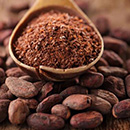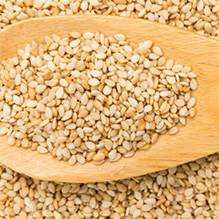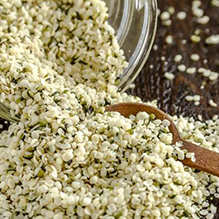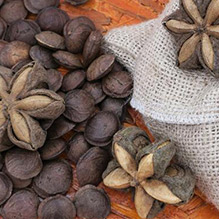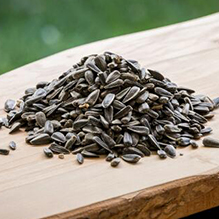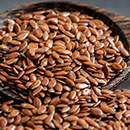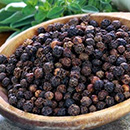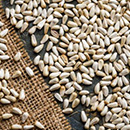Hydraulic Oil Press Machine
Hydraulic Oil Press Machine
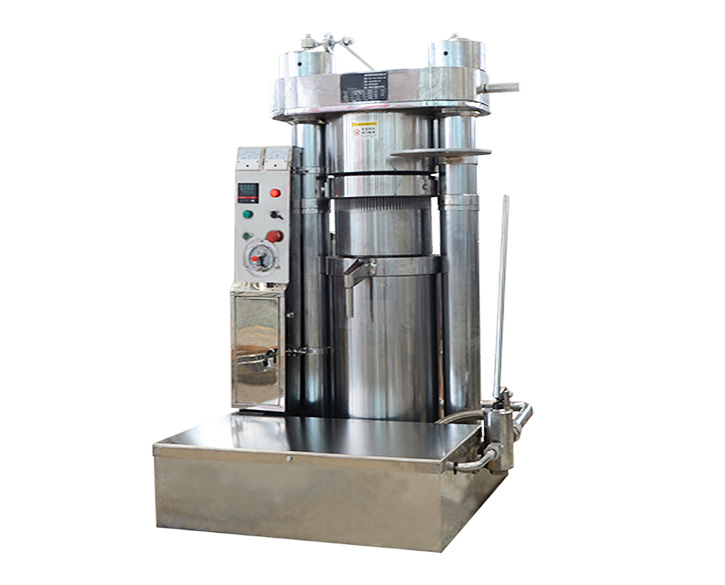
Buy Hydraulic Oil Press Machine From Poly Machinery
Process Capacity:
1280-1920kg/24h
Our Press Machine Usage:
– Cold pressed woody oilseeds: walnut kernels, almonds, lentils, pine nuts, macadamia nuts, flaxseeds, etc.
– Hot pressed oilseeds: sesame, peanut, sunflower, corn germ, wheat germ, evening primrose seed, etc.
– Hot pressed spices and herbs: pepper seeds, flax seeds, mustard seeds, safflower seeds, perilla seeds, etc.
Types of Raw Materials We Can Deal
The pressed materials include: sesames, walnuts, avocados, flax seeds, cocoa beans, peanuts, sunflower seeds, almonds, macadamia nuts, pepper seeds, hemp seeds, safflower seeds etc.
Poly Hydraulic Oil Press Machine For Sale
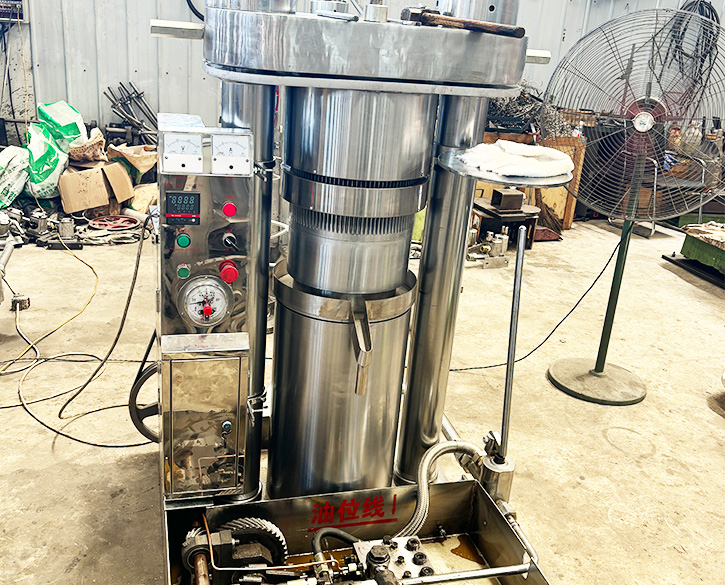
| Models | 6YY-190, 6YY-220, 6YY-220I, 6YY-270, 6YY-270I |
| Cylinder plunger diameter | 190, 220, 220, 270, 270 |
| Single charge | 8, 10, 12, 15, 20 |
| Single press time | 9, 10, 11, 12, 15 |
| Process capacity(kg/24h) | 1280, 1440, 1570, 1800, 1920 |
Introducing our state-of-the-art hydraulic oil press, a marvel of engineering designed for efficiency and durability.
Crafted with a robust combination of carbon steel and stainless steel, it boasts a sleek, chrome-plated exterior that embodies both form and function.
The machine’s innovative design features a sunken, thickened base plate, significantly reducing its height for enhanced safety and ease of operation.
Equipped with a double heating system and dual temperature controls, it ensures rapid heating and smooth oil discharge, optimizing your production process.
Precision is paramount, and our machine delivers with core components meticulously crafted using advanced CNC machining centers for unparalleled accuracy.
The powerhouse of this unit is its ultra-high-pressure, three-piston oil pump capable of achieving a formidable 70MPa, backed by an enlarged fuel tank that supports continuous, round-the-clock operation.
This machine is not just a piece of equipment; it’s a productivity powerhouse, setting new standards in the oil press industry.
What Seed Can Our Hydraulic Oil Machine Deal With?
Cocoa Beans Oil Pressing: Roasted beans are fed into the press, which gently expels the butter, capturing the deep, chocolatey essence ideal for culinary and cosmetic use.
Hemp Seeds Oil Pressing: The seeds are processed, yielding an oil rich in essential fatty acids and a nutty flavor, without psychoactive properties.
Almonds Oil Pressing: After blanching and peeling, almonds are pressed. The oil is extracted without losing the sweet almond aroma, perfect for both culinary and topical uses.
Walnuts Oil Pressing: After pre-cracking shells, load kernels into the press. The hydraulic mechanism applies intense pressure, yielding a rich, full-bodied walnut oil.
Macadamia Nuts Oil Pressing: The hard-shelled nuts are cracked, and the rich, buttery oil is extracted, preserving the nuts’ healthful properties and luxurious taste.
Sesames Oil Pressing: Preheat the press; add cleaned sesames. The machine exerts force, squeezing oil through the filter, preserving the seeds’ natural antioxidants and flavors.
Avocados Oil Pressing: Halve and pit avocados; scoop out flesh. The press extracts the creamy oil, maintaining the fruit’s high nutrient content and green hue.
Flax Seeds Oil Pressing: Load the tiny seeds; the machine’s steady pressure ensures maximum oil extraction, rich in omega-3 fatty acids, while preventing heat degradation.
Peanuts Oil Pressing: Shell and clean peanuts before pressing. The machine produces a light, flavorful oil commonly used in cooking and frying applications.
Sunflower Seeds Oil Pressing: The hulled seeds are pressed, and the machine’s precision yields a clean, light oil, retaining the seeds’ subtle, nutty profile.
Pepper Seeds Oil Pressing: Dried and cleaned pepper seeds are pressed, producing an oil with a spicy punch, adding zest and heat to various dishes.
Safflower Seeds Oil Pressing: The press extracts the oil from safflower seeds, creating a versatile, mild-flavored oil ideal for cooking and cold preparations.
Hydraulic Press Machine Price List
The price of a hydraulic press oil can vary significantly based on several factors, including its capacity, automation level, construction materials, and the specific features it offers.
Entry-level hydraulic oil press machines
Designed for small-scale operations or home use typically range from $2,00 to $1,000.
These machines are usually manually operated or have basic automation and are capable of processing a few kilograms of seeds per hour.
Mid-range hydraulic presses
Cater to more extensive operations with higher automation features can cost between $5,000 and $15,000.
These machines offer better efficiency, larger processing capacities – often several hundred kilograms per hour – and may include digital controls, temperature regulation, and improved safety features.
For industrial-scale production
Hydraulic press machines can be quite costly, with prices ranging from $10,000 to over $50,000.
These high-end machines are built with superior materials, advanced automation, higher press forces, larger capacities, and can run continuously for mass production. They may also include custom features tailored to specific industry requirements, such as food-grade stainless steel components, precision pressure controls, and integrated filtration systems.
It’s crucial for buyers to consider not just the initial cost but also the long-term operational costs, including maintenance, parts replacement, and energy consumption. Additionally, the quality of the oil produced, the machine’s durability, and the manufacturer’s customer service and warranty offerings can significantly influence the overall value and cost-effectiveness of the hydraulic press machine investment.
Use of Hydraulic Press in Extraction
Hydraulic presses are pivotal in the extraction industry, especially for cold pressing seed and nut oils. The mechanism operates by exerting extreme pressure through a hydraulic pump that channels force onto a press plate, crushing the raw material and expelling the oil. This process is renowned for its ability to produce high-quality, unrefined oils, since the cold press method doesn’t introduce heat that can degrade the oil’s flavor, nutritional value, and color.
The adaptability of hydraulic presses to different scales of production makes them invaluable. Small businesses and boutique operations often utilize smaller presses for their low-volume, high-quality oil production. In contrast, industrial operations employ large-scale hydraulic presses to generate significant quantities of oil efficiently, capitalizing on their ability to run continuously and handle large batches.
One of the most significant benefits of using a hydraulic press for oil extraction is the quality of the final product. The oils produced through this method are typically cleaner, purer, and contain fewer impurities compared to those extracted using solvent methods. Moreover, the absence of chemicals in the extraction process makes the oils more desirable for consumers looking for natural and organic products.
In summary, hydraulic presses offer a clean, efficient, and scalable method for oil extraction that is favored across the industry for its ability to produce superior quality oils.
Pressing Process with Oil Hydraulic Press
Sesame Hot Pressing Process: Roasting in a drum roaster—Smoke removal and cooling—Pressing—Filtering (as needed).
Peanut/Sunflower Seed Hot Pressing Process: Shelling—Crushing—Roasting in a flat-bottomed roaster—Pressing—Filtering (as needed).
Walnut Pressing Process: Shelling—Cake forming—Pressing—Cake crushing—Cake reforming—Cake pressing. According to the process design, walnuts are generally pressed 2-3 times.
Hot Pressing Process for Other Oilseed Crops: Shelling (as needed)—Crushing—Steaming and roasting (according to the process)—Cake forming (as needed)—Filtering (as needed).
Cold Pressing Process for Other Oilseed Crops: Shelling (as needed)—Crushing (as needed)—Cake forming—Pressing (cake crushing and pressing 2-3 times according to the process design)—Filtering (as needed).
Hydraulic Oil Manufacturing Process
The manufacturing process of hydraulic oil, a high-pressure lubricant used in hydraulic machinery, involves several key steps to ensure the final product meets industry standards for purity, viscosity, and performance.
- Base Oil Selection: The process begins with selecting the appropriate base oil, which is typically a refined mineral oil or a synthetic liquid. The choice depends on the intended use of the hydraulic oil and the operating conditions it will face, such as temperature range and potential for contamination.
- Additive Mixing: To enhance the oil’s properties, various additives are blended with the base oil. These additives may include anti-wear agents, corrosion inhibitors, detergents, viscosity index improvers, and antioxidants. The precise formulation is critical and is often proprietary to the manufacturer.
- Quality Control: Throughout the blending process, rigorous quality control measures are in place to ensure consistency and quality. Samples are tested for viscosity, corrosion prevention, foam resistance, and thermal stability.
- Filtration: After blending, the oil is filtered to remove any impurities or particulate matter. This step is crucial for preventing damage to hydraulic systems and extending the life of both the oil and the machinery.
- Packaging: Once the hydraulic oil meets all specifications, it is packaged into containers ranging from small bottles to large drums, depending on the distribution needs. The packaging is designed to prevent contamination and preserve the integrity of the oil.
The entire process is designed to produce a hydraulic oil that provides reliable performance under high pressure, protects machinery components, and maintains system efficiency.
Features of Our Machine
High Efficiency Extraction
Our oil press machines are engineered for maximum oil yield with minimal waste, ensuring efficient extraction and superior throughput for various seeds and nuts.
Advanced Temperature Control
Equipped with precise temperature regulation, our machines maintain optimal heat levels to preserve the oil’s flavor and nutritional value during extraction.
Robust Construction
Constructed with high-grade materials, our oil press machines offer durability and longevity, reducing maintenance needs and ensuring continuous operation in demanding environments.
User-Friendly Interface
Designed with an intuitive interface, our machines allow for easy operation and monitoring, making the oil pressing process straightforward and accessible to operators of all skill levels.
Advantages of Hydraulic Oil Press
Hydraulic oil press extraction stands out in the oil production industry for its exceptional ability to produce high-quality oils.
The method employs a mechanical force that ensures the purity and integrity of the oil, as it does not involve the use of chemical solvents or high temperatures that could degrade the oil’s flavor, nutritional value, and aromatic compounds. This cold-pressing technique is highly revered for maintaining the natural properties of the oil, resulting in a product that is not only superior in taste but also rich in healthy antioxidants and vitamins.
Moreover, the hydraulic oil for press operates with a high degree of precision, exerting uniform pressure that ensures consistent oil quality and yield. The process is environmentally friendly, as it reduces waste and eliminates the need for harmful solvents. The machines are typically easy to operate and maintain, which further enhances their appeal to small and medium-sized enterprises looking to produce artisanal oils or larger operations striving for efficiency without compromising on quality.
The robust construction of oil hydraulic presses also contributes to their longevity, making them a durable and cost-effective option in the long run. With the increasing consumer demand for natural and unrefined oils, the hydraulic oil machine is an invaluable tool for producers looking to cater to this market while ensuring their product stands out for its purity and premium quality.
What to Know About Hydraulic Oil Press in Extraction?
When considering the use of a hydraulic press for extraction purposes, it’s essential to understand its operational mechanics and benefits. A hydraulic press relies on Pascal’s principle, applying uniform pressure throughout the fluid in a closed system to multiply force. This apparatus is particularly effective for extracting oils from seeds and nuts, as it can generate the high pressure required to release oils without elevating temperatures significantly, which can compromise oil quality.
Key points to be aware of include:
- Temperature Control: Hydraulic presses typically operate at lower temperatures compared to other extraction methods, preserving sensitive nutrients and flavors in the oils.
- Efficiency: While the extraction process with a hydraulic press can be slower than solvent-based methods, it yields cleaner oils with fewer impurities, making it more efficient in terms of quality.
- Versatility: These presses are adaptable to various materials, from common seeds like sunflower and canola to more exotic types like flaxseed or chia.
- Scale: Hydraulic presses are available in different sizes, catering to both small artisanal producers and large-scale industrial operations.
- Maintenance: The simplicity of the hydraulic system often results in lower maintenance costs, but regular checks are crucial to ensure longevity and consistent performance.
- Cost: The initial investment in a hydraulic press can be significant, but the long-term benefits of producing higher-quality oils can offset this cost.
- Safety: Operators must be trained in safety protocols, as the high-pressure system poses risks if not managed correctly.
Understanding these facets of hydraulic press operation is vital for anyone looking to invest in this extraction technology, ensuring they can maximize its potential while maintaining a safe and efficient production environment.
What Is the Best Hydraulic Press?
The “best” hydraulic press is subjective and depends on the specific needs and applications of the user. However, certain attributes are universally desirable, which include:
- Durability: A robust construction with high-quality materials ensures longevity and consistent performance under rigorous use.
- Capacity: The press should have the appropriate tonnage capacity for the intended tasks, whether for small-scale artisanal work or heavy industrial operations.
- Precision: Advanced control systems that allow for precise pressure adjustments and control are essential for tasks requiring high accuracy.
- Efficiency: A good hydraulic press operates efficiently, with minimal energy waste and maximum output. This can be measured by the speed of operation and the consistency of results.
- Safety: Safety features such as guards, emergency stop buttons, and pressure relief valves are critical to protect operators from accidents.
- Ease of Use and Maintenance: User-friendly interfaces for operation and straightforward access for maintenance tasks help in reducing downtime and keeping the machine running smoothly.
- Versatility: The ability to handle various materials and tasks, as well as compatibility with different dies and molds, makes a hydraulic press more valuable.
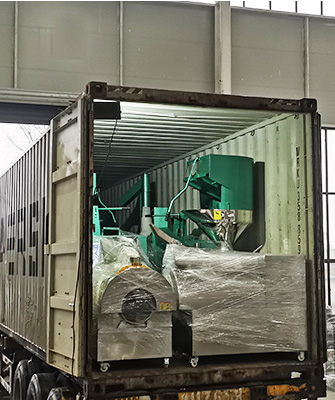
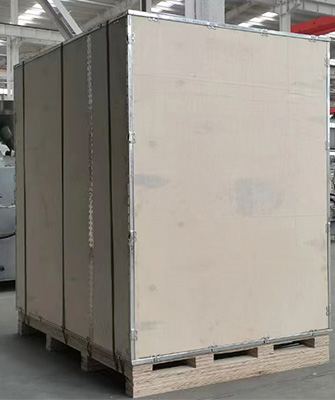
Customer’s Feedback
Quality Sunflower Seeds Oil output! It fully satisified my need for selling quality sunflower seeds oil to my customers, good company! Good Machine!
Gambia / Avishkar Singh
About Poly Oil Press Machine
Poly Oil Press Machine stands as a premier provider of seed processing equipment, boasting over 25 years of industry expertise.
Our catalog features a diverse array of machinery, including hydraulic oil press machine, screw oil press machine, commercial oil press machine and industrial oil press machine, advanced drying technology, and precision sifting equipment.
Poly Oil Press Machine is dedicated to delivering pioneering solutions tailored to the unique requirements of our global clientele.
25+
Years Served
100+
Countries Exported
80+
Finished Projects
40+
Types of Machines
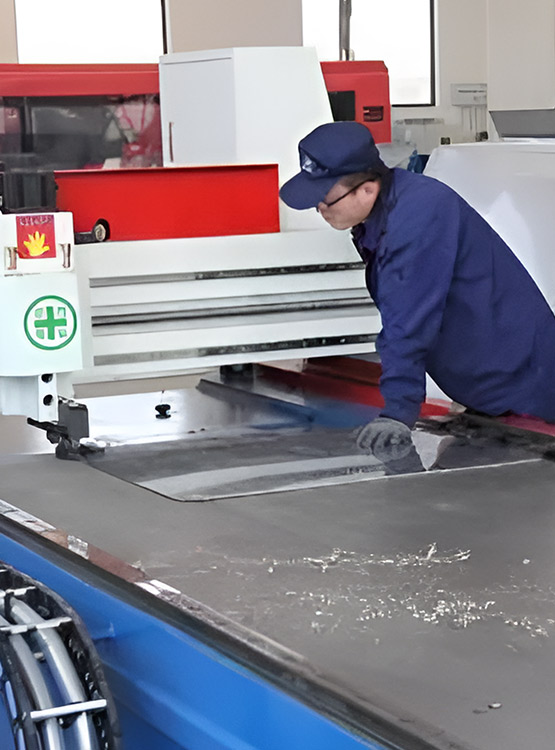
Talk to Our Expert For More About Poly Oil Press Machinery Details.

